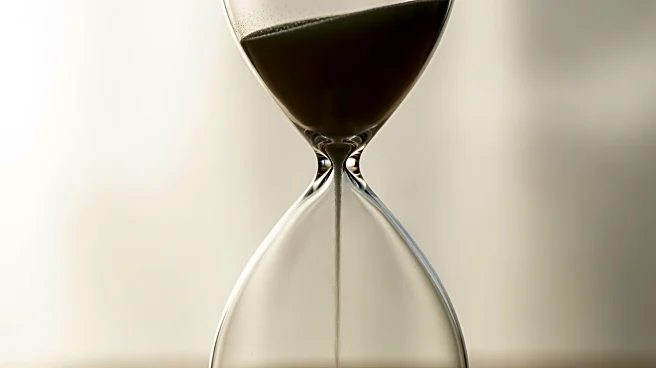What's Happening?
A recent study published in the journal Communications Biology investigates why time appears to pass more quickly as people age. Researchers utilized data from the Cambridge Centre for Ageing and Neuroscience, analyzing brain activity of 577 participants
aged 18 to 88 while they watched an episode of 'Alfred Hitchcock Presents.' The study found that older participants experienced fewer transitions between neural states, suggesting that their brains logged fewer 'events' over time. This phenomenon, known as age-related neural dedifferentiation, may contribute to the perception of time speeding up with age. The study highlights the potential influence of neural activity patterns on time perception, suggesting that older adults' brains may not differentiate events as distinctly as younger brains.
Why It's Important?
Understanding the perception of time as people age has significant implications for cognitive science and aging research. The findings could influence how society approaches aging, potentially impacting mental health strategies and quality of life for older adults. If older adults perceive time as passing more quickly due to fewer neural events, this could affect their engagement in activities and social interactions. The study also opens avenues for exploring how lifestyle changes, such as learning new skills or engaging in social activities, might alter time perception and improve life satisfaction among the elderly. This research could inform public policy and healthcare practices aimed at enhancing the well-being of aging populations.















